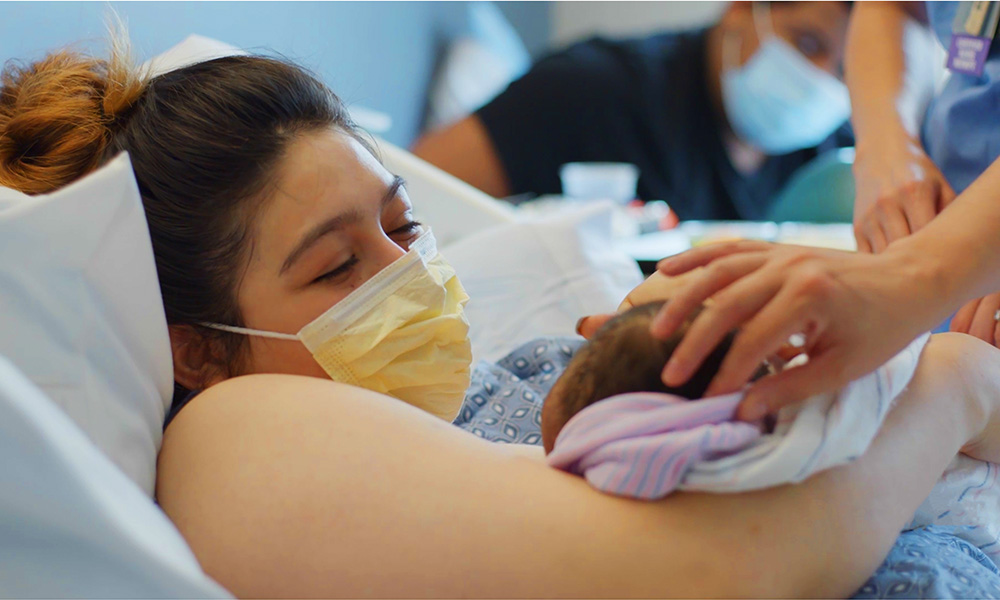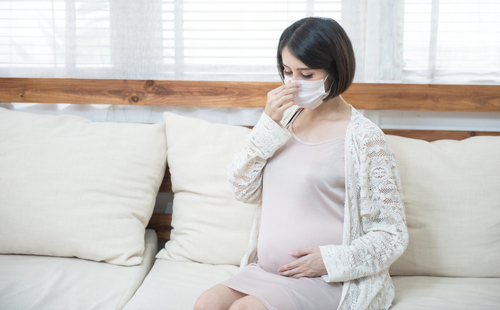The journey of pregnancy is a miraculous and joyous experience, but the ongonig JN.1 variant pandemic has undoubtedly added an extra layer of concern and uncertainty for expectant mothers.Navigating the complexities of the pandemic, it becomes imperative for expectant mothers to prioritize their health and nurture their well-being, a journey we’ll illuminate with practical wisdom in this all-encompassing handbook.
Care of Pregnancy during JN.1 variant
Prenatal Care in the Age of Social Distancing
Prenatal care remains a cornerstone of a healthy pregnancy, even in the midst of a pandemic. However, traditional prenatal visits may need to be adapted to the current circumstances. Telehealth appointments have become a popular and effective alternative, allowing expectant mothers to consult with healthcare providers from the safety of their homes. Ensuring that you attend all scheduled appointments, whether in-person or virtual, is essential for monitoring the well-being of both the mother and the developing fetus.

Prioritizing Mental Health
The emotional toll of the pandemic can be particularly challenging for pregnant women. Uncertainty about the future, concerns about the virus’s impact on pregnancy, and social isolation can contribute to heightened stress levels. It is crucial to prioritize mental health during this time. Engaging in mindfulness activities, seeking virtual support groups, and maintaining open communication with loved ones can provide valuable emotional support.
Healthy Lifestyle Choices
Nurturing well-being amidst pregnancy and the challenges of a pandemic underscores the importance of embracing a wholesome lifestyle, where personalized guidance from healthcare professionals ensures optimal nutrition, tailored exercise regimens, and ample rest, fostering a resilient immune system.
Enhanced Hygiene Practices
Given the contagious nature of JN.1 variant, practicing rigorous hygiene measures becomes even more critical during pregnancy. Regular handwashing, avoiding contact with sick individuals, and adhering to recommended safety protocols are fundamental. It is advisable to carry a hand sanitizer containing at least 60% alcohol for times when soap and water are not readily available.

JN.1 variant Vaccination Considerations
As vaccination efforts continue globally, pregnant women may have concerns about the safety of JN.1 variant Navigating the complex landscape of healthcare choices requires careful consideration, and consulting with a trusted healthcare professional ensures personalized decision-making, taking into account individual health status and risk factors.
Creating a Safe Home Environment
Ensuring a safe home environment is crucial for pregnant women during the pandemic. This includes practicing good hygiene within the household, frequently disinfecting commonly touched surfaces, and maintaining social distancing when interacting with individuals outside the immediate family. Additionally, pregnant women should be vigilant about their surroundings and minimize unnecessary outings to crowded places.
Planning for Labor and Delivery
The prospect of labor and delivery during a pandemic can be daunting. Expectant mothers are encouraged to discuss birthing plans with their healthcare providers well in advance. This includes clarifying hospital policies, understanding potential changes to birthing practices, and exploring virtual birthing classes as an alternative to in-person sessions.
Building a Support System
Social support is invaluable for pregnant women, especially during challenging times. While physical distancing measures are in place, technology allows for virtual connections with friends and family. Creating a strong support system can provide emotional assistance, practical help with daily tasks, and a sense of community during pregnancy.
Monitoring for JN.1 variant Symptoms
Pregnant women should remain vigilant for symptoms of JN.1 variant, including fever, cough, and difficulty breathing. If any symptoms arise, prompt communication with a healthcare provider is essential for guidance on testing and appropriate measures. Early detection and intervention can contribute to better outcomes for both mother and baby.
Postpartum Care and Adjusting to Parenthood
The challenges of the pandemic extend into the postpartum period, requiring additional considerations for new mothers. Navigating the postpartum journey may involve adapting to changes in family dynamics, accessing virtual support groups, and prioritizing self-care. Open communication with healthcare providers about any postpartum concerns is crucial for a smooth transition into parenthood.
Conclusion
Pregnancy is a remarkable and transformative experience, and with thoughtful care, expectant mothers can navigate the challenges posed by the JN.1 variant. By prioritizing prenatal care, mental health, healthy lifestyle choices, and building a robust support system, pregnant women can enhance their well-being and embrace the journey of motherhood with resilience and confidence. As the world continues to navigate these uncertain times, empowering pregnant women with knowledge and support remains essential for fostering a positive and healthy pregnancy experience amidst the backdrop of a global pandemic.
Read More:-Top 10 Yoga Tips Asanas For Better Eyesight
Read More:- The Top 7 Health Insurance Plans for Families


